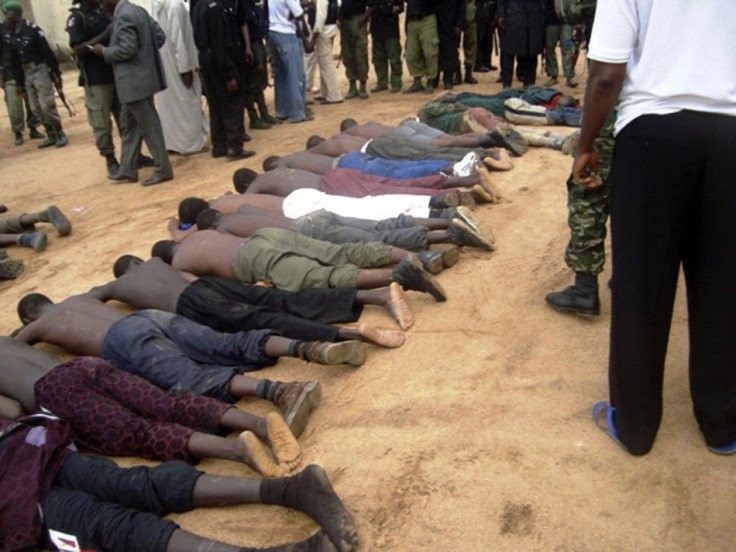Boko Haram Squares off with Nigerian Cops; More Deaths, More Arrests

Nigerian police arrested 14 suspected members of the Islamic militant group Boko Haram following a fatal shoot-out in the city of Kano over the weekend.
Three police officers and four militants were killed in the northern Nigerian city on Saturday, according to AngolaPress, in the latest battle between President Goodluck Jonathan's Joint Security Forces and the militant sect. The shoot-out started after an alleged Boko Haram member discovered his house was under surveillance, after which he ordered his comrades to open fire on local officers.
In the days that followed, police rounded up around 14 rebels, along with stockpiles of guns and explosives from areas in the north, according to Voice of America.
Boko Haram is a militant group whose goal is to make Nigeria an Islamic state. The name Boko Haram roughly translates to Western education is a sin, and the group is based in the north of the country, where the population is overwhelmingly Muslim. Most of Nigeria's northern states already operate under sharia law, but Boko Haram's quest is to extend the religious dogma over the entirety of the country.
Most of Boko Haram's attacks -- which generally including the bombing of government institutions and police stations, as well as the occasional gun attack in a market or village -- occur in the north, but the group has recently been showing up in the capital and in other parts of the Christian-dominated south.
According to sources, Boko Haram began with little structure, leadership or unification within its ranks, and so attacks are often carried out by independent factions in certain cities. Nonetheless, it is now believed that al-Qaida is working with the Nigerian insurgents and could have had a part in the August attack on a United Nations building in Abuja that killed two dozen people.
Additionally, the arrest of Senator Mohammed Ali Ndume last month suggests that Boko Haram has found institutional support. Ndume was fingered as a Boko Haram financier by rebel spokesperson Ali Sanda Umar Konduga during a police interrogation. The lawmaker -- from the northern state of Borno, Boko Haram's home base -- has spent 26 days in an Abuja jail on four counts of terrorism.
Ndume has requested bail, which he will only get if he fulfills eight court-ordered conditions, including a personal payment of 25 million naira ($15,000), and a payment of the same sum from two sureties.
Boko Haram has been a presence in Nigeria for the past three years, but the group's activities escalated after Jonathan -- a southern Christian -- was re-elected earlier this year. Since then, there campaign has seemed endless and unstoppable and they have carried through attacks on a near-weekly basis.
Last week, the militants attack a military-run secondary school near Kano, killing four air force officers. On Monday, a Boko Haram bomb-making factory in the city of Damaturu exploded, wounding three people, according to Reuters. While Damaturu is in the north, it is not in Borno.
President Jonathan is now using a joint force of all state security personnel and police officers to combat Boko Haram. The tactic has proved to be controversial, with soldiers preferring to open fire on a city street or doing house-to-house interrogations above all other methods of law enforcement. The force has arrested a number of militants, including the 14 this weekend.
© Copyright IBTimes 2024. All rights reserved.





















